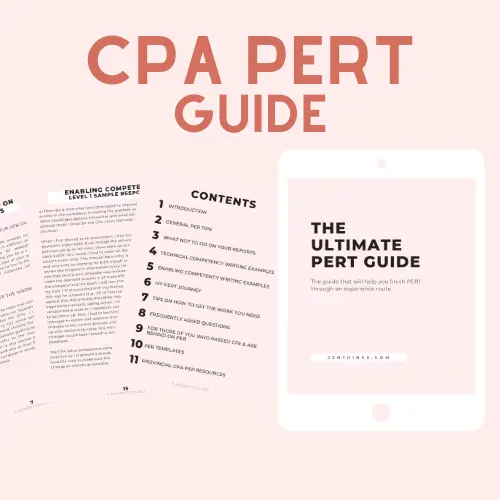It has been almost five months since the news broke about CPA Ontario & CPA Quebec withdrawing from CPA Canada. I shared what I knew about the topic that same month as a lot of us (including myself) did not see this coming and most importantly, did not understand what it really meant. I attended the virtual CPA Canada’s 2023 AGM a couple of months ago and unsurprisingly, there were a lot of questions surrounding the topic. Since both CPA Canada and Ontario have updated their respective FAQ sections regarding the matter, I thought I will provide another update based on what I can find online. I will state clearly when a statement is my personal opinion. My intention is to help digest what has been released by both sides as they can be overwhelming. Also, I will cite the sources wherever applicable.
Aside From CPA Ontario And CPA Quebec, Has Any Other Provinces Announced Their Withdrawal From CPA Canada?
As of November 17, 2023, I am not aware of any publicly available information pertaining to other provinces withdrawing from CPA Canada.
What Will Happen to the PEP & CFE for Ontario Students After The Split from CPA Canada?
Update on November 27, 2023: An agreement has been reached between CPA Canada, CPA Ontario and L’Ordre des CPA du Québec for CPA Canada to continue developing PREP, PEP and CFE. This is great news as the agreement ensures a consistent program and no interruption for current and prospective CPA candidates.
Pamela Steer, President and CEO of CPA Canada, has stated that “there’s currently no agreement on how the exams and educational programs will work after the split” and CPA Canada owns all the intellectual property of the materials currently used in PEP and CFE.
On the same topic, CPA Ontario has reassured candidates and members that “courses, exams and professional development will not be affected” during the transition period which ends in December 2024. They also promised no disruption for students whose PEP journey will take them across the transition period.
In summary, there is currently no clear answer as to what will actually happen to PEP or CFE. What exactly does no disruption mean by CPA Ontario? Will there no change at all for Ontario students until the new certification program is in effect? The only thing for sure is this: candidates writing May and September 2024 CFE, you will not be affected at all.
Personally, I really feel for current and prospective PEP candidates in Ontario and Quebec. Since the departure announcement triggered an 18-month withdrawal period back in June, we are just over a year away from December 2024. From a planning perspective, I recognize how hard and discouraging the uncertainty can be. However, as I have stated in the past, we should focus on what we can control. My suggestion would be:
- ensure you truly understand the technical knowledge being taught in PEP
- focus on developing your soft skills (e.g., leadership, communication) and continue to network
- stay focused on your career growth as while the designation is absolutely great to have, you can thrive in your career without it (either temporarily or permanently)
What Is Happening With The New CPA Certification Program?
While CPA Canada has not released any new FAQ since March 2023 regarding the New Certification Program, both CPA Canada and CPA Ontario have reassured members that the program is still under active development. Also, it is worth noting that CPA Ontario has made it clear that the new certification program was not a deciding factor for their departure decision.
What Are The Deciding Factors for CPA Ontario Relating to Their Departure?
I answered this question in my last post (TL;DR: regulation oversight, governance, financial transparency and accountability). However, I thought it would be fitting to answer again as CPA Ontario has addressed this question more recently. Specifically, CPA Canada’s responsibility over the “catastrophic 2019 CFE writing” was cited as one of the main issues.
For those who have not heard of that particular CFE, here is a CBC article on the ordeal for writers in Edmonton. Basically, due to some technological issues, CFE writers experienced hours-long delay over the 3-day exam. As the CFE itself was already 4- to 5-hour long each day excluding waiting time, writers were essentially stuck at the exam center for the entire day. From what my friends have told me, everyone was exhausted, anxious and hungry.
In response to this specific claim, CPA Canada explained that it was the “the first time the profession collectively decided to move to a completely technological suite of solutions for the exams.” They also noted that the pass rate remained consistent with previous years. I understood that as the exam was scaled in so you were evaluated against your cohort who also went through the same stressful experience. However, since I do not have insight on how much exam centers varied (e.g., whether the Vancouver writers experienced a shorter delay than Edmonton or vice versa), I am not able to conclude whether it was fair or not.
The only thing I can comment on is that when I wrote CFE in 2021 under COVID restrictions (wrote in my own hotel room), the whole process went smoothly.
Where Weren’t CPA Ontario Members Ask to Vote Before The Departure Was Decided & Announced?
CPA Ontario reassured its members that the decision was made by council members that were either elected by the members or are appointed by the Ontario Government. They also went more technical in explaining that since the Collaboration Accord, the agreement that guides the partnership among CPA Canada and the provincial, territorial and Bermudian bodies (PTBs), was not voted upon when it was signed, the council members were within their rights to make the decision on behalf of the members.
In simple terms, while CPA Ontario can and did make the decision without consulting individual members, all council members except for the public representatives (appointed by the Ontario Government) were in fact elected by the members.
How Does The Withdrawal Affect The Mobility Nationally & Internationally for CPA Ontario Members?
This one is probably the trickiest one to answer and you will see why. National and international mobilities for Canadian CPAs are important as they affect our ability to work across the country and worldwide.
The good news is, CPA Ontario reassures its members that “you will always be a Canadian CPA and part of a unified profession across the country.” CPA Canada echoes the same by referencing the Canadian Free Trade Agreement which provides CPAs with mobility between provinces. However, CPA Canada did highlight the fact that the interprovincial mobility was a product of the standardization we currently have for PEP and other requirements nationally. There is no guarantee this will not change if the level of standardization is changed.
In terms of international mobility, this is where it gets a bit confusing. CPA Canada stated that they currently negotiate these agreement on behalf of the PTBs. As a result, re-negotiations might be required should the structure changed. CPA Ontario addressed this matter by stating that it will “continues to be a signatory to international agreements alongside other PTB bodies” and that it is them and their “counterparts who authorize mobility agreements domestically and internationally,”
My personal opinion on this topic? They don’t know exactly what will happen to these mobility agreements yet. With this being said, I will not be too worried about it. As confusing as this journey has been for the past 5 months, I have not lost doubts that both parties intend to do what is best for the profession. It simply serves no one’s interest should they not. The stronger Canadian CPAs are, the more recognition we will as nationally and internationally.


